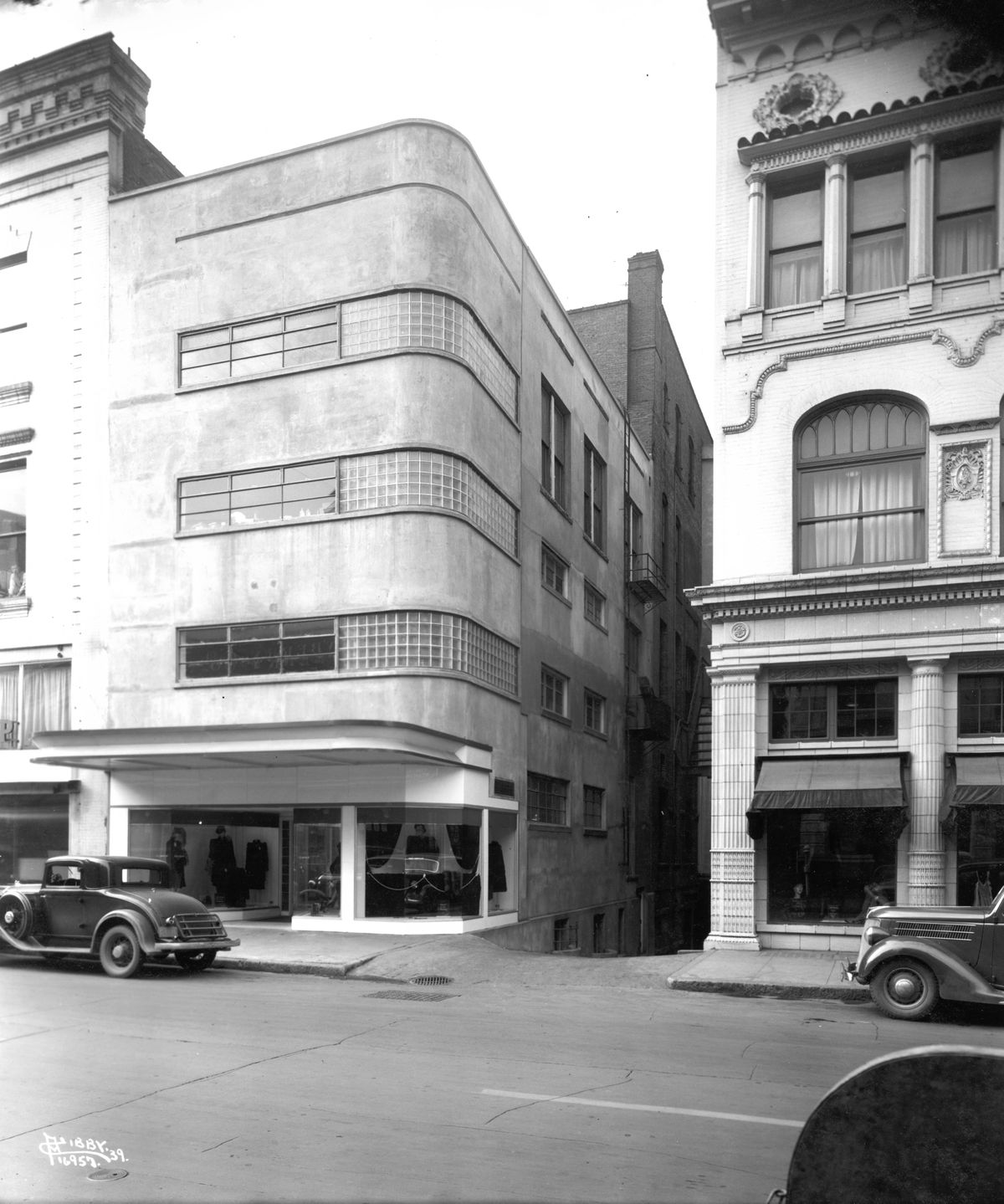Then and Now: Cannon block home to several banking firms

Anthony McCue Cannon arrived in Spokane in 1878, just a few years after James Nettleton Glover had plotted the streets of a new city. Cannon and partner J.J. Browne bought half of Glover’s town, with a $50 down payment on a $3,000 price, and began to develop it. Cannon took over Glover’s dry goods store, where he started Spokane’s first bank, the Bank of Spokane Falls, in 1879. He also invested in the lumber mill by the falls.
In 1882, Cannon put his bank and business headquarters in a wooden building on Wall Street and Riverside Avenue. He built a four-story, 22-room mansion at Third Avenue and Cedar Street.
Cannon’s wealth couldn’t stop the flames of Aug. 4, 1889, and his bank was leveled.
Cannon threw himself into rebuilding, both with bank funds and financing from other banks.
To get his bank up and running, he built the Cannon Block, a narrow building facing Wall Street. Then he and Browne finished the massive Auditorium building, which opened in September 1890 with the opera “Manon” and would go on to host concerts, vaudeville and movies. The grandeur of the 1,750-seat opera house was a first for Spokane.
Cannon’s next project was his new bank building. The neoclassical gem was nicknamed the “marble bank” because it was faced with veined gray marble. Just weeks before moving in, the Bank of Spokane failed for lack of capital and closed, an early victim of the Panic of 1893 in Spokane.
Overnight, the bank seized the homes and businesses of the former millionaire. He died at age 68, two years later, in New York City, still looking for new business opportunities.
The marble bank housed Old National Bank, Fidelity National Bank and First National Bank over the years. In the Cannon Block, Washington Trust Co., started in 1902, stayed until 1911. Today, Washington Trust is the oldest and largest privately held bank in the Northwest.
Both bank buildings were torn down in 1953 to expand the Crescent department store.